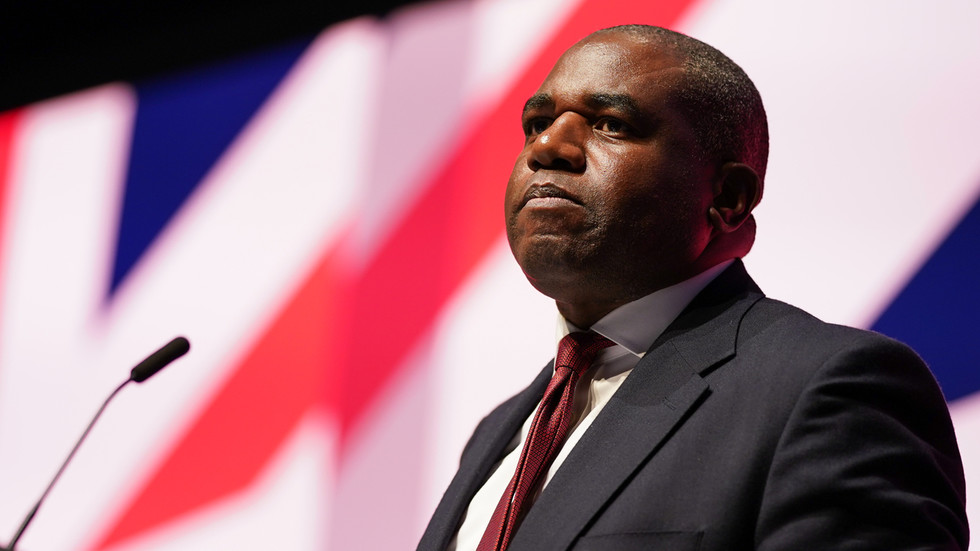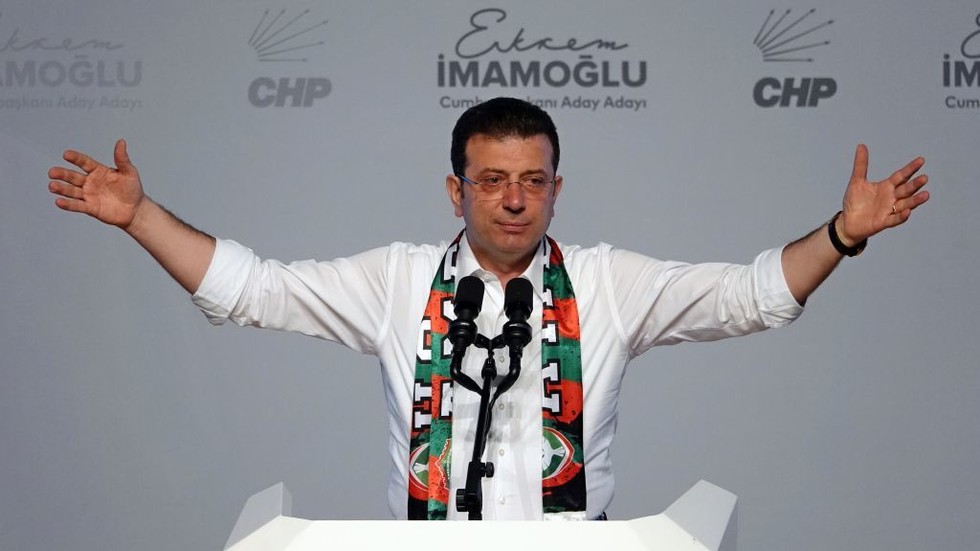Israel launched a series of airstrikes on central Damascus early Wednesday, targeting what it called key Syrian military infrastructure, including the Syrian Defense Ministry headquarters and a facility near the presidential palace.
The attack marked one of the most direct Israeli strikes on the heart of the Syrian capital in recent years.
Three people have been killed and another 34 injured in the strikes, according to the Syrian Health Ministry.
Video footage released by both Israeli forces and Syrian media show the moment the airstrikes hit the building in central Damascus, sending pieces of debris high into the air alongside large plumes of smoke.
“The warnings in Damascus have ended - now painful blows will come,” Israel’s Defense Minister Israel Katz warned before the strikes. “The IDF will continue to operate forcefully in Suwayda to destroy the forces that attacked the Druze until their complete withdrawal.”
Moments later, he shared a video of the strike live on Syrian TV, with the caption: “The painful blows have begun.”
The Israel Defense Forces (IDF) said the Damascus headquarters served as a command center for deploying regime forces to Suwayda, a southern Syrian region gripped by days of deadly clashes between government troops, Druze militias, and Bedouin groups.
The strikes followed escalating violence in Suwayda, a region in the south of Syria predominantly home to the country’s Druze minority.
Fighting in Suwayda sparks regional alarm
Clashes erupted over the weekend between Druze militias and local Bedouin forces, forcing the Syrian government to deploy security forces in an attempt to quell the fighting.
Since then, pro-government forces have joined, causing further concern for the Druze community which lives mostly in Suwayda.
The Syrian Observatory for Human Rights group (SOHR) has reported that almost 250 people have been killed in the violence since Sunday. It also reported that the Suwayda national hospital had come under attack from tanks on Wednesday.
Israel has long positioned itself as a self-declared protector of Druze communities, a politically sensitive stance, given the large Druze population within Israel and the occupied Golan Heights.
“Our Druze brothers in Israel, you can rely on the Israel Defense Forces to protect your brothers in Syria,” Katz said on Wednesday.

In May, Israel launched another attack on Damascus in response to violence in Suwayda. Strikes targeted the area surrounding the Syrian presidential palace, with SOHR calling the attack a “blatant violation of Syria’s soveignty.”
Israeli Prime Minister Benjamin Netanyahu said that the strikes sent a clear message to Syria.
“Israel is committed to protecting the Druze in Syria. We will not allow harm to come to them, and we will continue to act resolutely against any such attempt,” he said on social media.
The Druze are an Arab minority group who practice an offshoot denomination of Islam. Most Druze live in Syria, Lebanon and Israel. There are an estimated 700,000 Druze living in Syria, with a further 300,000 in Lebanon and 140,000 in Israel.
Read more: A New Middle East Is Unfolding Before Our Eyes
Syria's new government struggles to contain sectarian violence
The violence unfolds against the backdrop of Syria’s political instability following the December collapse of the Assad regime. The new government, led by Ahmed Al-Sharaa and dominated by factions from Hay’at Tahrir al-Sham, recently delisted as a terrorist group by the U.S., has struggled to stabilize the fractured state and protect vulnerable minorities.
Despite Al-Sharaa’s pledges to safeguard communities like the Druze and Alawites, recent attacks on Alawite towns in northwestern Syria have renewed fears that the country’s sectarian fissures remain dangerously exposed.
Israel’s strikes in Damascus, particularly those aimed so close to Syria’s presidential seat of power, may mark a turning point in how Jerusalem is willing to project power across the border and risk drawing Israel deeper into Syria’s post-Assad unrest.
Read more: Netanyahu at the Crossroads
U.S. Special Envoy to Syria Tom Barrack on Wednesday called for an immediate ceasefire in Suwayda and urged all parties to de-escalate.
“We unequivocally condemn violence against civilians in Suwayda,” he posted on his official X account.

 3 hours ago
1
3 hours ago
1










 English (US) ·
English (US) ·